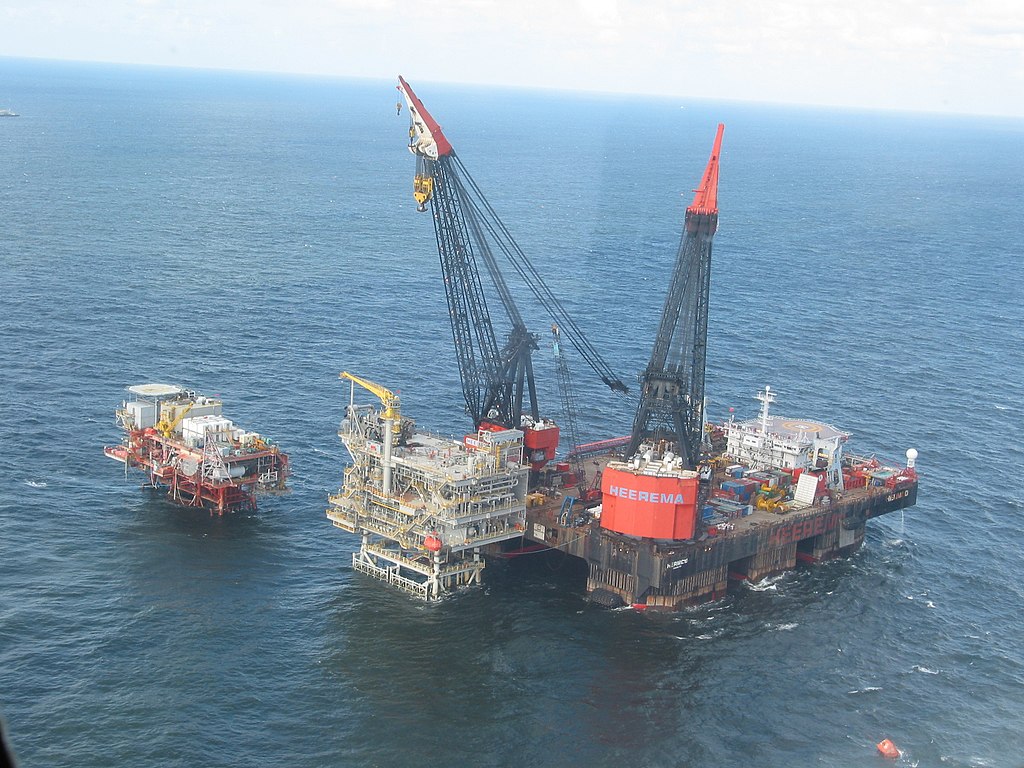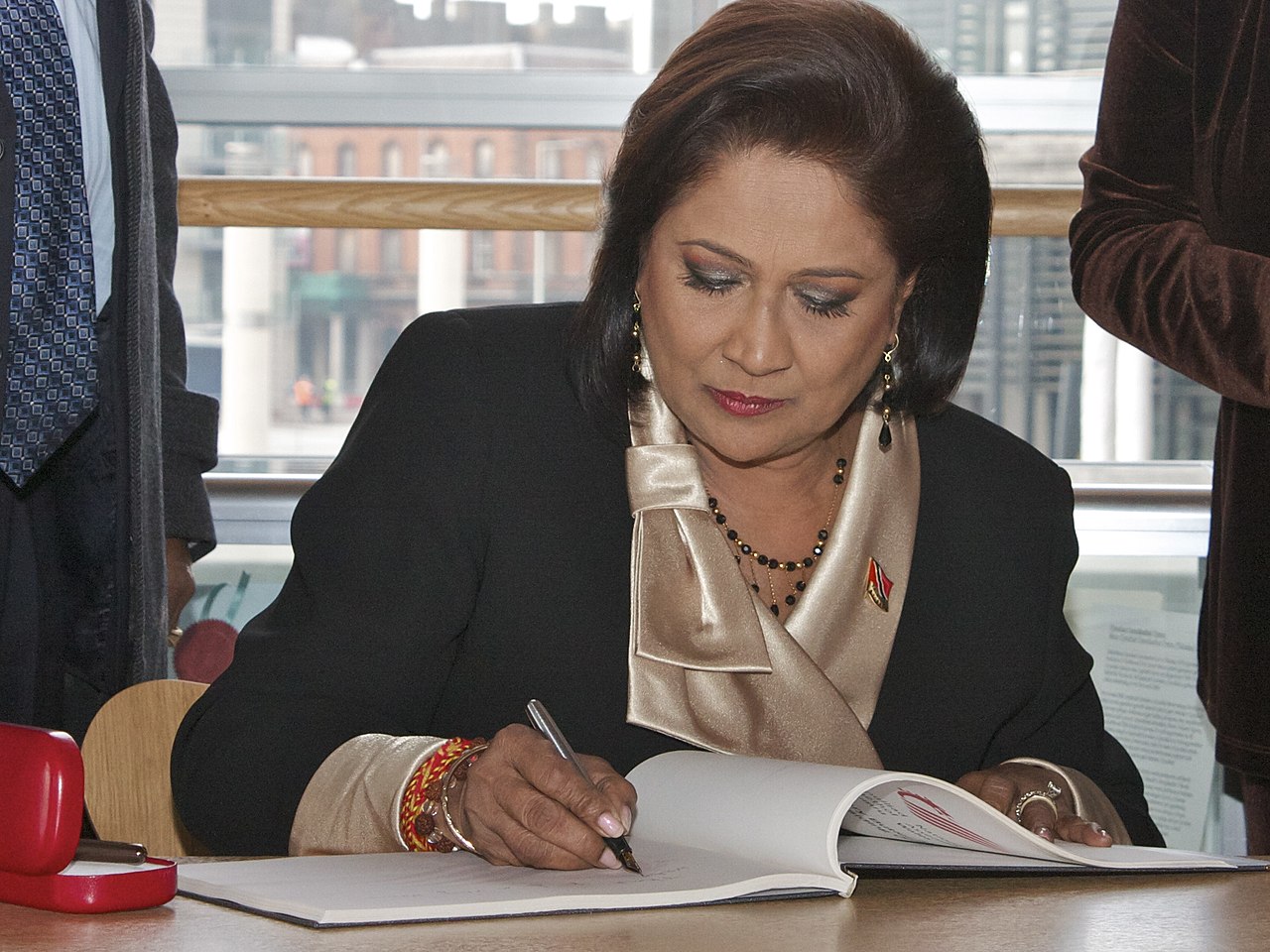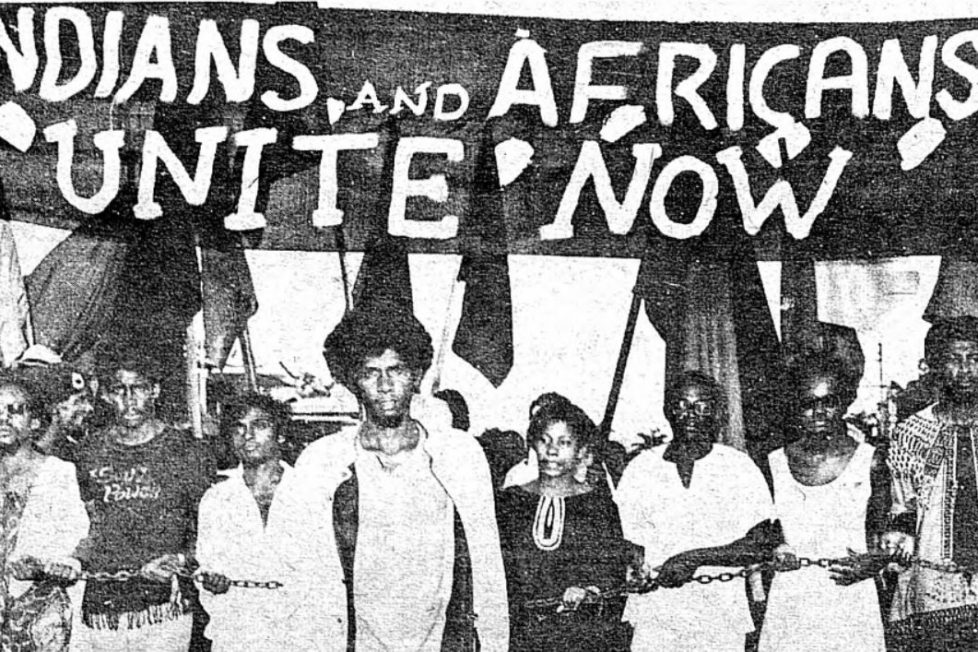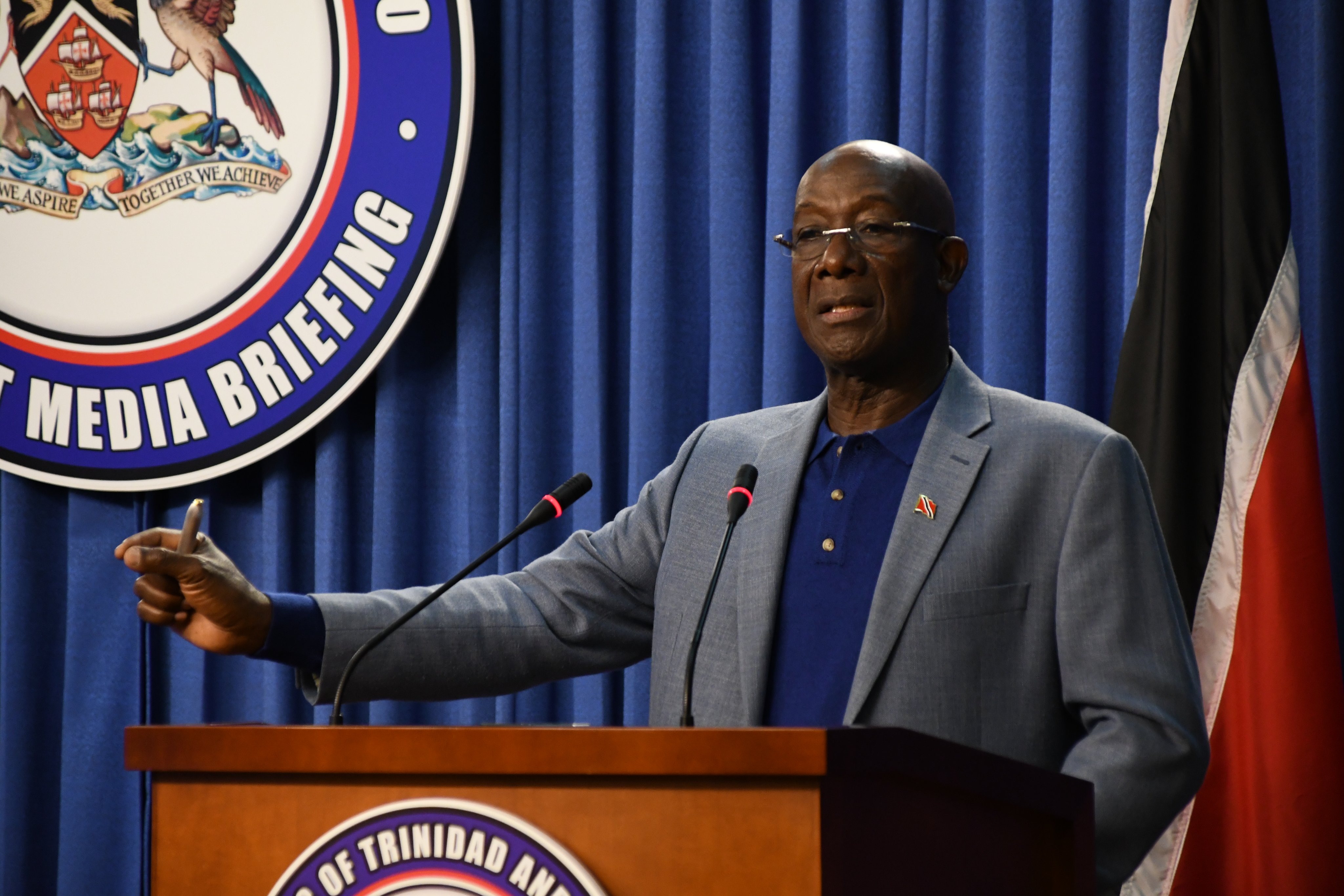Amidst a rising tide of class struggle in Trinidad and Tobago, local elections are to be held on 14 August. Yet, it’s expected that the turnout will fall to its lowest in decades. This reflects a rejection of the capitalist establishment and the need for a revolutionary alternative for workers and the youth.
The ruling People’s National Movement (PNM) and the opposition United National Congress (UNC) promise voters stability and prosperity. But there can be no return to stability or prosperity on the basis of capitalism. The old rehashed slogans of the PNM and UNC are, therefore, impotent.
Between 2015 and 2022, food prices increased by 45.9 percent, which has made shopping for necessities unaffordable. Creeping inflation of 9 percent has led to average real-term weekly wages falling by 26 percent. Cuts to wages, social services, and jobs have become the norm.
Last year, the murder rate was the highest in Trinidad’s history. Crime and corruption have begun to permeate every corner of society. This social crisis is a direct consequence of the colossal pressure that capitalism places on the shoulders of the working class.
At the 2020 general election, voter turnout was 58 percent, the lowest in over 42 years. More acutely, the previous local election in 2019 saw a turnout of just 34 percent, a record-low for local elections. A widespread apathy has gripped voters ahead of this year’s elections. Some are talking about turnout falling below 30 percent. This abstentionism represents a real grave situation for the ruling class, whose state institutions are completely discredited.
While the political front is blocked off, workers have expressed their class anger on the industrial front. The number of new trade unions has increased and, notably, the rank-and-file are becoming more militant under the hammer blows of the bosses.
From top to bottom, Trinidadian society is in crisis. The PNM, UNC, and the whole establishment represent the interests of a dying system. However, what is lacking is a revolutionary alternative to overthrow the corrupt capitalist system and fight for socialism.
Debt crisis
The energy sector dominates the national economy. Oil and gas represent 40 percent of GDP and 80 percent of exports. The early 2000s oil boom came to an end with a massive decline in oil prices between 2014 and 2019. Following the sudden drop in oil prices, the COVID-19 pandemic arrived.
 Oil and gas represent 40 percent of GDP and 80 percent of exports / Image: Chanilim714, Wikimedia Commons
Oil and gas represent 40 percent of GDP and 80 percent of exports / Image: Chanilim714, Wikimedia Commons
The inability to procure vaccines for months coupled with poor distribution led to the highest COVID-19 mortality rate in the Caribbean. One article in Trinidad Newsday correctly highlighted:
“We have two healthcare systems, one for the wealthy, and another – plagued by politics, PR gimmickry, nepotism, and inefficiency – for the poor and socially disadvantaged.”
The government borrowed huge amounts of money to overcome the economic crisis triggered by COVID-19. This led to a massive increase in national debt, reaching $138 billion TTD ($20.2 billion USD).
The national debt is increasing at a faster rate than ever in its history and reached 83.3 percent of GDP in 2021. The IMF predicts that it will grow by $10 billion TTD each year until 2026. But how could an oil-rich country like Trinidad be in so much debt? Trinidad’s oil is in private hands.
Paria Fuel Trading Company, for instance, is reaping annual profits exceeding $257 million TTD, a staggering 58 percent increase on previous years. And British Petroleum is responsible for over 50 percent of Trinidad’s hydrocarbon production. They amassed global profits surpassing $10.8 billion USD in the final quarter of 2022.
Meanwhile, foreign-owned banks such as Canadian ScotiaBank amassed profits of $684 million TTD in 2022. The Royal Bank of Canada saw its profits skyrocket to $907 million TTD, an 83 percent increase from previous years.
The money clearly exists to pay off public debts and bring down the costs of everyday essentials. The problem is that these mega-profits are in private hands and not the hands of workers.
Austerity
In order to pay these debts, the PNM plans to embark on a campaign of privatisation of state-owned industries and austerity cuts. This would be a disaster for the workers who would immediately face a barrage of attacks on pay, working conditions, and jobs from the parasitic privateers.
Universities are being told to become more “cost-effective” by cutting courses, and primary schools complain that they are lacking basic supplies. Fuel subsidies have been capped leading to increases in fuel prices. As a consequence, public transportation fees have also increased.
Austerity means placing the cost of the crisis onto the shoulders of the working class. God forbid the profits of the capitalists are impeded!
While the UNC accuses the PNM of selling out the country, the PNM fires back exposing the UNC’s links to the Cambridge Analytica scandal. Both parties, whose election campaigns have been ridiculed as “circuses of red (PNM) and yellow (UNC)”, have lost all credibility in the eyes of workers.
Cesspit of crime and corruption
Scandals such as the Piarco Airport debacle have been reintroduced during the election campaign by both parties in order to shift the blame onto each other. Other scandals within the last decade have resurfaced, of which there are almost too many to keep track. In order to gain political capital at one another’s expense, the two parties are just collectively helping to further discredit the institutions of capitalist rule as a whole.
 Kamla Persad-Bissessar has been implicated in an email scandal which suggests that a civil servant was pressured to hire a UNC-approved judge for a senior role / Image: Welsh Parliament, Flickr
Kamla Persad-Bissessar has been implicated in an email scandal which suggests that a civil servant was pressured to hire a UNC-approved judge for a senior role / Image: Welsh Parliament, Flickr
The UNC’s then-PM Kamla Persad-Bissessar has been implicated in an email scandal which suggests that a civil servant was pressured to hire a UNC-approved judge for a senior role. It is clear that such an appointment would allow the UNC to halt the prosecution of numerous corruption scandals they are implicated in.
In another case, $165 million TTD of public funds were used to rent an empty building which was eventually found to have been leased to PNM Attorney General Al-Rawi. He is accused of lining his pockets through the Treasury.
These are but two of hundreds of corruption scandals that have plagued the ruling parties for decades, for which neither have faced consequences. But the extent of corruption goes beyond the corridors of power. What has become increasingly evident to the people is the collusion of political parties in perpetuating the influence of deadly criminal gangs.
Many gangs have amassed vast wealth and even political power, particularly in areas such as Beetham Gardens and Sea Lots. In these areas, murders have become daily occurrences and show no sign of slowing.
The government turns a blind eye to serious crime precisely because they are the financiers of organised gangs. They offer corporate contracts or legal protection to gang leaders, whom they refer to as “community leaders”!
Under the guise of preventing the rise in crime, the government has increased funding to the police. Of course, this does nothing to tackle the economic and social causes of crime. In reality, it is intended to bolster the state’s armed bodies of men ahead of impending social explosions.
It is, therefore, no surprise that a 2020 poll found that only 21.8 percent of people trusted political parties, only 26 percent trusted parliament, and 31 percent trusted the law courts. Trinidad recently ranked 161st out of 167 countries for “institutional trust”.
Bourgeois institutions have lost any credibility in the eyes of the working class. Recent polls show support for the police is as low as 28% – yet another example of a deep mistrust of the capitalist system as a whole. One pillar of the establishment after another is crumbling.
Divide and Rule
The ruling class are anxious about the radical mood developing in society. In order to divert the attention of the working class away from the class struggle they resort to the old divide-and-rule tactics. But it is harder to drive a wedge between Indian and African workers as it once was. Thus, the establishment is adapting its methods.
As a result of the crisis of capitalism in Venezuela, caused by low oil prices, US sanctions, and the setbacks suffered by the Bolivarian Revolution under Nicolas Maduro’s leadership, over 40,000 Venezuelan migrants sought refuge in neighbouring Trinidad, providing the ruling class with a useful scapegoat.
Venezuelan migrants lack official rights in Trinidad and comprise the most exploited segment of the working class, with some resorting to prostitution as a means of survival.
In 2019, PM Keith Rowley reluctantly agreed to naturalise Venezuelan migrants and provide them with short-term work permits. Persad-Bissessar cynically accused the PNM of using “aliens” to secure election victories.
Both parties scapegoat Venezuelan migrants for increased crime, depressed wages, and even for the COVID-19 pandemic. This xenophobia plays directly into the hands of the capitalist class, dividing the rising workers’ movement and shifting the blame for capitalism’s problems onto migrant workers.
But the tactic of divide-and-rule is seeing diminishing returns as the crisis deepens, and therefore the ruling class are compelled to openly repress the workers’ movement. For example, they have made unionising a daunting task. The greater amount of paperwork and stringent conditions deter or bar some workers from unionising. As a result, less than 20 percent of the Trinidadian workforce is officially unionised, although this is slowly rising in spite of barriers.
It is no coincidence that most of the attacks on the workers’ movement have been aimed at the most militant sections – the workers organised in the Oilfields Workers’ Trade Union (OWTU). If the ruling class can take on and defeat the most militant workers then they will feel emboldened to go after every other section of the working class without rebuke.
This cannot be allowed to happen. The trade unions must wage a militant and united struggle against such attacks, mobilising the whole of the working class.
Workers on the march
By going on the offensive, the ruling class has unwittingly awoken a mighty force: the Trinidadian working class.
To comprehend the ruling class’ trepidation, we need only cast our minds back to the 1970 Black Power Revolution. The revolution was a revolution against imperialism and capitalism, uniting Africans and Indians, workers and students, and came tantalisingly close to toppling the PNM government led by Dr Eric Williams.
During the historic 1970 ‘March to Caroni’, workers marched under banners proclaiming, “Indians and Africans Unite Now”. They demanded the nationalisation of the commanding heights of the economy, including the foreign-owned petroleum and banking sectors.
 During the historic 1970 ‘March to Caroni’, workers marched under banners proclaiming, “Indians and Africans Unite Now” / Image: public domain
During the historic 1970 ‘March to Caroni’, workers marched under banners proclaiming, “Indians and Africans Unite Now” / Image: public domain
These radical traditions must be put into practice once again. During the 2018 Petrotrin movement, calls for a cross-sector nationwide strike built links across the working class under the slogan, “An injury to one is an injury to all!”
Recently, teachers, taxi drivers, university staff, oil workers, and numerous other sections of the public sector working class have initiated strike action. Ancel Roget, the leader of the militant Joint Trade Union Movement (JTUM), stated during a teachers’ strike, “We no longer live under a democracy; we are under the feet of a crushing government.”
The General Secretary of the Movement for Social Justice (MSJ), Ozzie Warwick, even stated on public video calls, “Comrades, we need to take state power.” We agree!
Such militant rhetoric reflects a radical mood among the rank-and-file, who see the current struggle as not limited to economic demands, but also as a political struggle. The pressure from the rank-and-file has emboldened the OWTU, JTUM, and MSJ leaders – who have a tradition of quoting Marx and Engels.
Yet, in spite of the ferment in society, trade union leaders have not taken full advantage of the widespread class anger. For example, there have been limited attempts to organise Venezuelan migrant workers, among whom thousands of supporters and participants of the Bolivarian Revolution can be found.
To take advantage of the widespread class anger, the labour movement leadership must ruthlessly expose the rotten class interests of the establishment and present a bold, revolutionary alternative. In the words of Marx and Engels in The Communist Manifesto:
“The Communists disdain to conceal their views and aims. They openly declare that their ends can be attained only by the forcible overthrow of all existing social conditions.”
Build the forces of Marxism
Capitalism long ago outlived its progressive role. Today, it is a colossal hindrance to the progress of human society. Revolutionary conditions are beginning to ripen.
The Trinidadian working class has enormous revolutionary potential as demonstrated by its rich history. However, these past movements ended in defeat due to one crucial factor: the absence of a revolutionary party and leadership.
Fortunately, we have time to build and prepare for what is required to overthrow this decaying capitalist system.
As already outlined, the wealth in Trinidad and Tobago exists to eradicate all of the problems that plague the working class and youth. But this is only possible by expropriating the oil and gas companies as well as the big banks, and placing them under democratic workers’ control as part of a rationally planned economy.
To all those who yearn for a world free from oppression, crisis, crime, corruption and suffering – build the forces of Marxism and join the International Marxist Tendency!
We say:
- Down with the UNC or PNM. For a revolutionary workers’ party!
- Clear out the establishment’s street gangs. For democratic community defence committees!
- Expropriate the big banks and energy companies without compensation! For democratic workers’ control as part of a rationally planned economy!
- For a workers’ state of Trinidad and Tobago, and a Socialist Federation of the Caribbean and Latin America!

